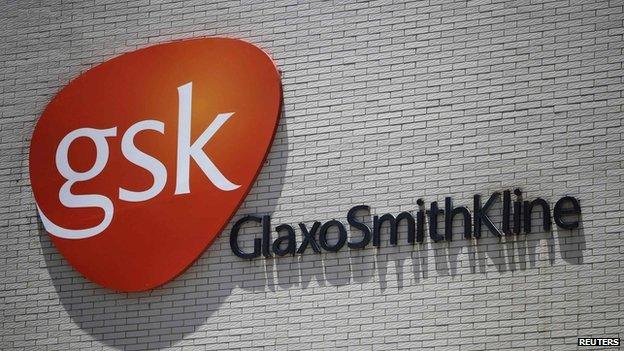GlaxoSmithKline’s fresh Chinese problems
- Published
- comments

Another morning, another slew of negative headlines for Sir Andrew Witty, the chief executive of GlaxoSmithKline.
The that GSK admitted to bribery problems in its China business as long ago as 2001.
About 30 people were sacked over allegations that doctors and health officials were given payments to push GSK products.
The cases are similar to the present bribery inquiry the business is facing. Here's my blog on the astonishing emails at the heart of those allegations.
The problem for Sir Andrew is that as each bribery problem comes to light, it builds an impression that there is a pattern here.
That whatever the internal controls at GSK, they did not function properly.
As I said in my blog of 4 July, in 2012, GSK was fined $3bn in America for fraudulently promoting drugs for unapproved use and failing to report safety data to the Food and Drug Administration.
And now come these fresh problems in China.
In 2001, Glaxo Wellcome was in the process of merging with SmithKline Beecham.
Sources tell me that the allegations emanated from a China vaccine division which was formerly part of SmithKline.
PWC was brought in to look at the allegations and GSK said they were dealt with.
"These matters occurred over 12 years ago," GSK said. "We believe appropriate investigation and action was taken at the time."
Peter Humphrey, the man hired by GSK to look at elements of the present bribery inquiry, was at the time working at PWC.
He is now facing charges in China for allegedly "illegally traffick[ing] a huge amount of personal information on Chinese citizens", according to state prosecutors.
In 2001, Sir Andrew was head of Asia Pacific, but his division did not include China, which was then a much smaller business.
I am told that he knew nothing about the allegations, and certainly, senior managers in London only became aware of the issue in the last few days.
The bribery inquiry was not reported at the time, because it was not material in financial terms.
Whether it was material in terms of reporting on matters of concern and being transparent is a different matter.
Sir Andrew presents GSK's second-quarter results next Wednesday.
I am sure he will once again express concern at what has been revealed about operations in China and say that the business is co-operating fully with the investigation by the Chinese authorities.
Rules on the relationships between GSK's sales teams and doctors have been tightened up. And reporting of problems is now much more comprehensive.
Sir Andrew will be hoping that the "China overhang" will not offer up any more uncomfortable surprises.